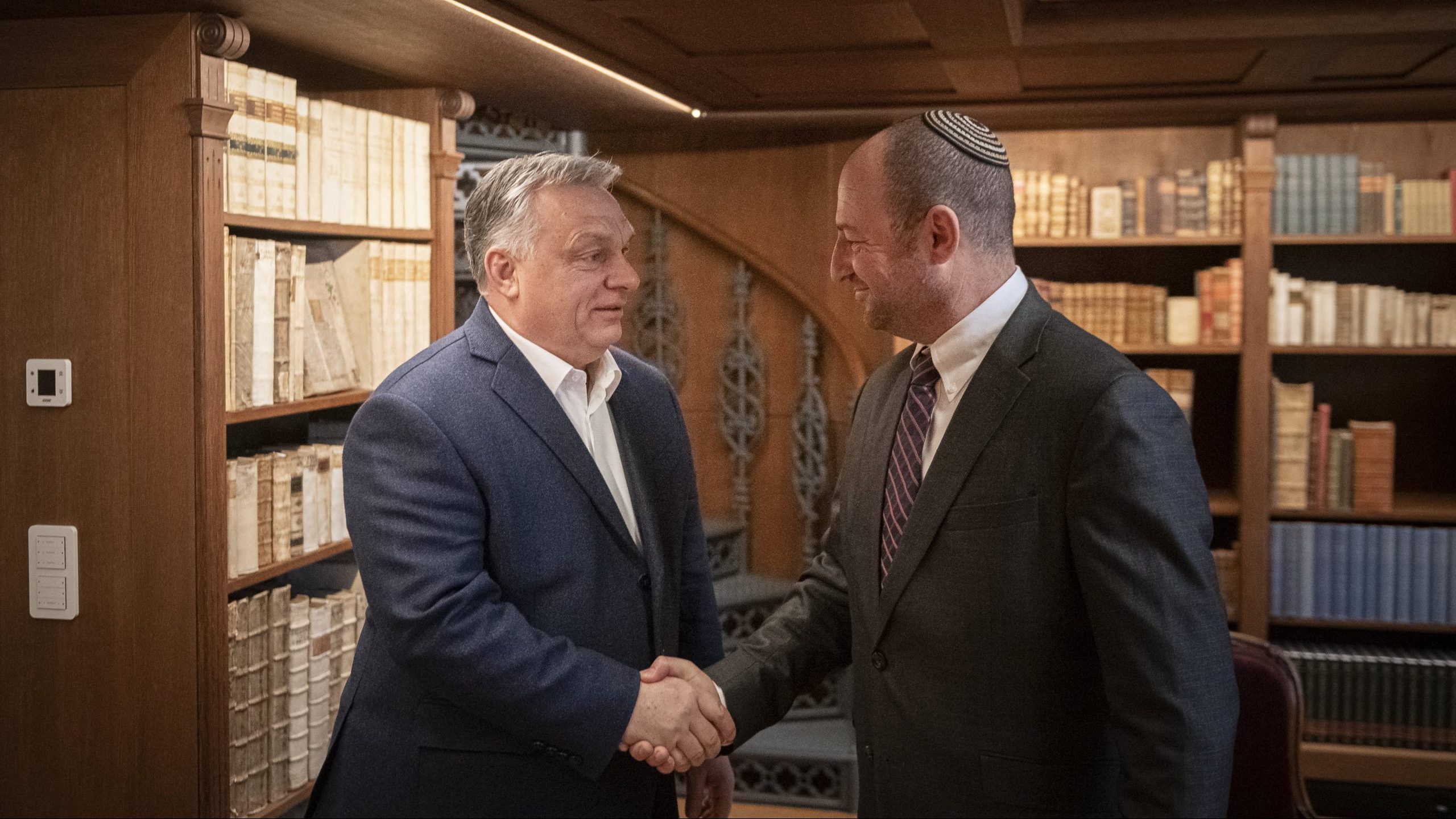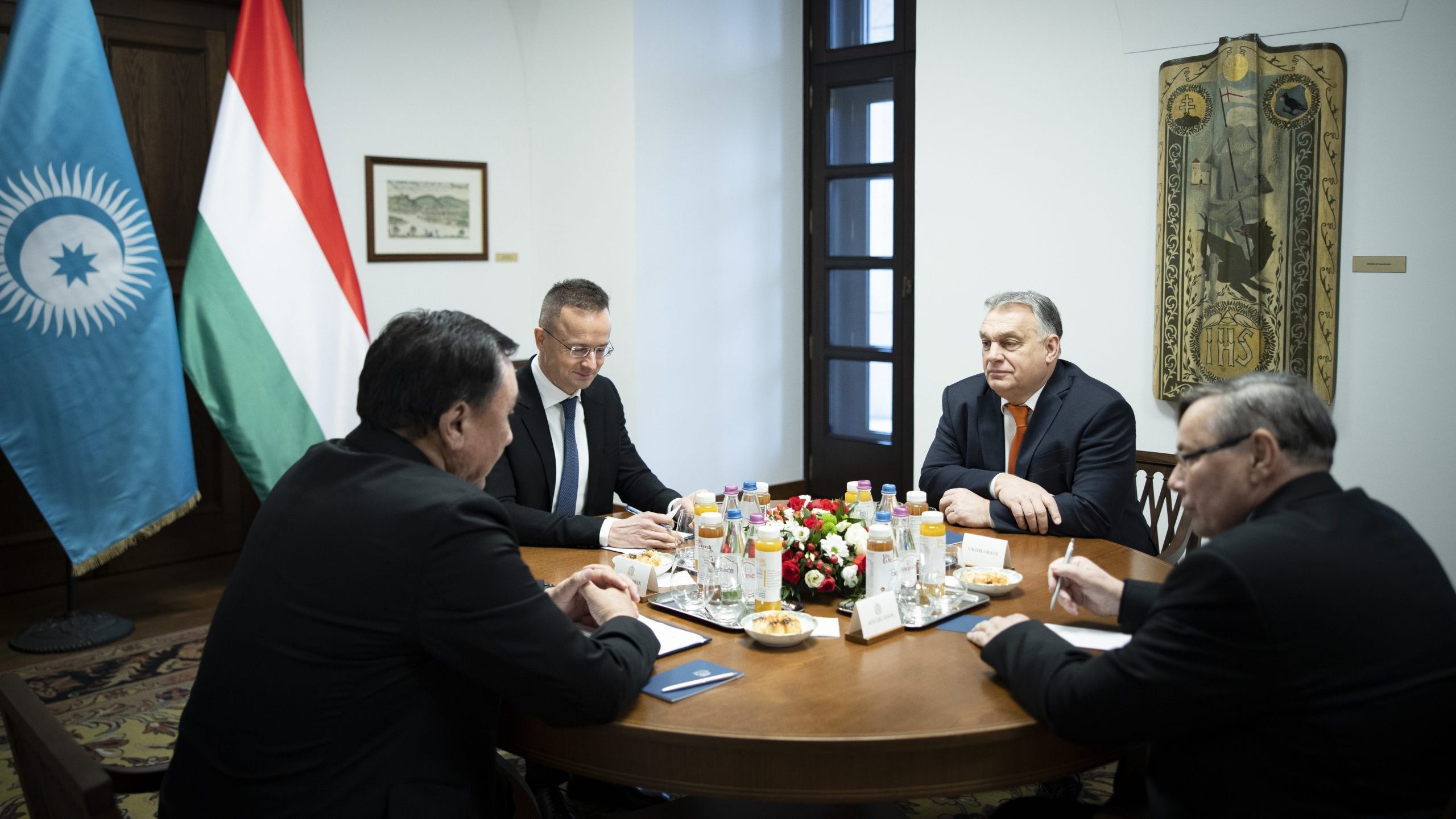
Good afternoon, my greetings to you all.
This press conference is breaking a basic political rule or law, according to which the winners tell jokes and the losers hold press conferences. Perhaps that was the case on Sunday night, but a few days after the election I feel that it is right to make myself available to you. I will also take this opportunity to once again thank the electorate for the enormous trust they placed in us in Sunday’s election, which it is an honour to have received.
I would first like to say a few words about the election results. If you look at the figures, you will see that this is the best election result ever. I went all the way back to the fall of communism, and found that no party has ever received so many votes. In percentage terms it was 54 per cent of the votes cast, and in terms of seats, more than two-thirds of the seats in Parliament. I am sure that some very long essays will be written about the causes of this victory and how it happened, and everyone will have some great thoughts about that. I will be happy to read those, too, and there will be a lot to learn from them; but I also have my own short analysis of what led to this great victory. I attribute it to three factors.
The first factor is that the Hungarians want peace, and as a war is in progress in our neighbourhood, they voted for those offering the greatest guarantee of peace. I would briefly like to remind you that we started our peace mission before the election and before the war, as I was in Moscow at the beginning of February on a trip that we explicitly described as a peace mission. Three of us tried: first I went – they always send the little one first; then the Germans and the French went, but unfortunately none of us succeeded. If you recall, in my “State of the Nation” address, which preceded the war, I spoke at length about the possibility of war. And that was when I first said that even if there was a war, Hungary must insist on peace.
The second circumstance that may have contributed to this success is the simple fact that Hungary is a successful country. If you take off your political blinkers, your ideological spectacles, and look at the facts, you will see that the two most successful countries in Europe today are called Poland and Hungary. These are the two countries with the lowest unemployment, the two countries with the highest rates of family support, and over the past twelve years the biggest tax cuts have been implemented in Hungary.
And the third circumstance relates to the fact that in order to win you need an opponent. It would not be refined of me to talk at length about this, and I won’t: it is not my job, and they will do that work. All I would say about our opponents is something that we, the winners, can learn from their failure – because you can learn from that, and not just from your own success. I think that what they formed was an “everything for power” coalition – that’s what I called it in my mind. This showed a total lack of respect for the electorate. It is disrespectful to announce in advance: “We don’t care about our past, we don’t care about our programme, we don’t care about ideas and whether or not they can be reconciled. We care about one thing: how to win the election, how to get into power and defeat others.” To politicians this may seem like a clever strategy, but from the voters’ point of view it can only be interpreted as contempt and disrespect towards them. This is because elections are never about politicians, they are never about coalitions, they are never about candidates for prime minister: they are about the people. The fate of anyone who forgets this – and whose programme is based on cold calculation and insulting the electorate – can only be failure. By contrast, I think that in this campaign we have represented a programme, campaign and culture of heart and passion. The most serious act of contempt and insult to the electorate was when it was announced that even fascists and communists could find their place in this “everything for power” coalition, and indeed retain their own identities. I think that is all I have to say about the election.
I would like to confirm that there has been no change in the vision about Europe and the future which is shared by the Government and the parties that won the election: Hungary will see the formation of a government – a governing party that has received a two-thirds mandate – which believes in the nation state. What is more, we not only believe that this is a good thing, we not only believe that it is inevitable and we not only believe that it is the foundation of our existence: we also believe that this idea will experience a renaissance. In Central Europe it is already undergoing a renaissance, and we believe that the same will happen throughout Europe. To put it slightly simplistically, our understanding of the world is that the calamities are global in nature. This is the nature of mass migration movements, of pandemics, and of wars. Effective, rapid responses, however, are always national and local. So we continue to believe in nation states.
The other pillar of this vision is the strengthening of our alliances. We are in an alliance as a member of the European Union, involving us in an alliance with the other European states. We have been participating in the debate on the future of the European Union, and have held a great many events in Hungary. Soon we will summarise the results of these and submit them, and we will take part in the overall process of aggregation. So we continue to envisage Hungary’s future within the European Union, and we want to take an active part in the shaping of the future European Union. We are also strengthening our alliance in terms of security. We are a NATO member country, we will remain a NATO member country, and we want to build a much stronger army than we have today. This will also strengthen NATO. If Hungary becomes stronger, our allies will also benefit.
Before I make myself available for questions, I would also like to say a few words about urgent tasks. Topping the list of urgent tasks is peace. As a country, Hungary is the size it is, and its influence is commensurate with that size; but we will use all our influence to achieve a ceasefire as soon as possible. A ceasefire is the first step on the road towards peace. A European peace conference must follow as soon as possible, because the war is becoming increasingly brutal, and I fear that if we do not succeed in achieving a ceasefire as a matter of urgency, there will be much more suffering in that part of the world. Moreover, that suffering and strife will move ever closer to the heart of Europe. This is our most important task.
Our second important and urgent task is to protect families. Everyone knows that an economic crisis is unfolding in Europe. There are many reasons for this, which act in combination, but the most important is sanctions. I am convinced that the most important factor in the economic crisis in Europe is the system of sanctions that we have imposed on Russia, and that we will pay the price for this. We must be prepared to deal with this economic crisis in Europe. I think that we can do this, and we will do everything we can to protect Hungarian families. We have already tabled proposals for remedying the most obvious manifestation, the most obvious problem in the European economic crisis: high energy prices. So we need immediate action from Brussels related to high energy prices. I have been proposing – initially quietly, but now ever louder – that as long as the war continues, all administrative regulations leading to price rises must be suspended. The reason for the introduction of these administrative regulations – such as taxes – is irrelevant: the war is causing high energy prices, and all previous decisions should be suspended for as long as the war continues. This means at least three things. The ETS [Emissions Trading System] – which is a special, complicated tax on fossil fuels – must be suspended. The regulation that links the price of electricity to the price of gas must also be suspended; obviously anyone who knows the area understands what this is about. And thirdly, there must also be suspension of the requirement to compulsorily mix biofuels into fuel. These are of biological origin, and they increase the price of fuel. If we do these three things, if we suspend them, we will already be successful in reducing the price of energy at European Union level. There will be a European Union summit soon, and I will repeat these proposals there. So this is where we stand, Ladies and Gentlemen.
If you have any questions, I will be happy to answer them.

